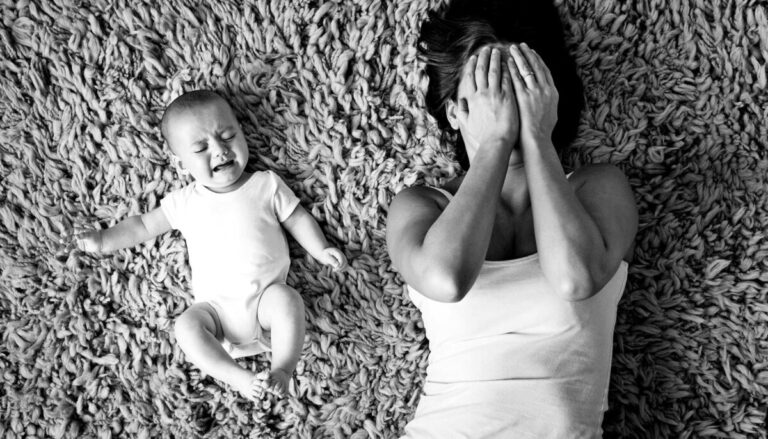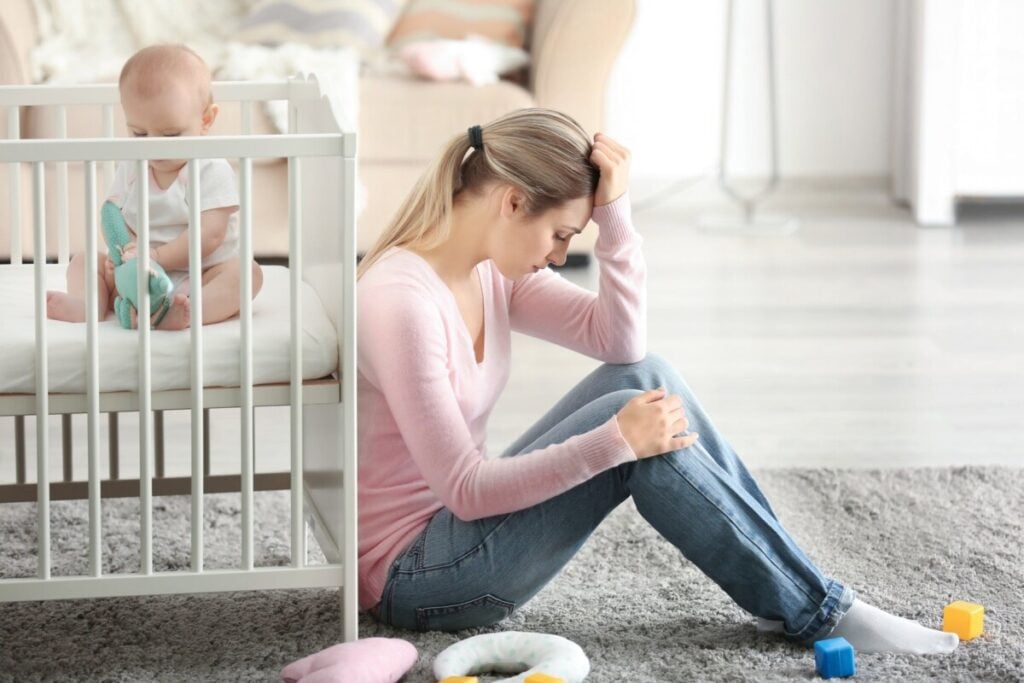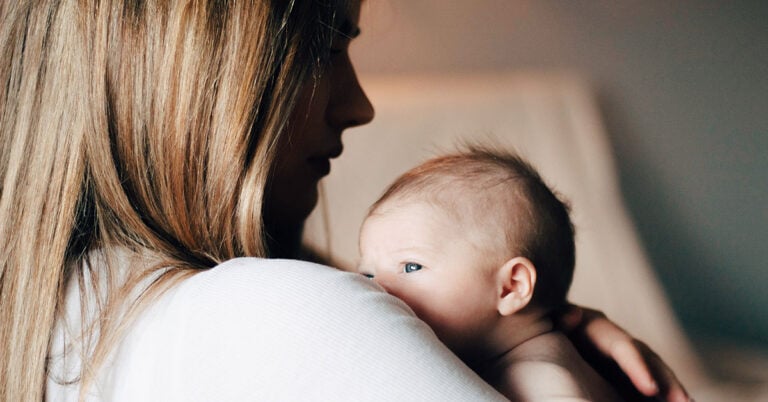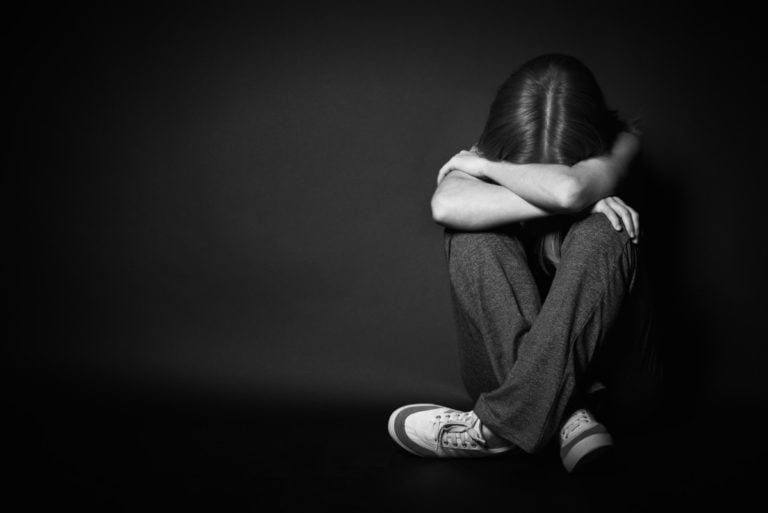The birth of a child is a time of great physiological, psychological and social change. The presence of psychiatric illness at such a sensitive time in family life has a negative impact on the mother, partner, children and family, and therefore represents a serious public health problem.
- What is postpartum depression?
- When does it start?
- Baby blues: normal reaction or a harbinger of postpartum depression?
- Causes of postpartum depression
- Symptoms
- How to recognize postpartum depression and help yourself?
- How is the diagnosis made?
- How long does postpartum depression last?
- Will she come back again?
- Are there effective treatments?
- What other difficulties are there?
For centuries, doctors have noted the connection between childbirth and mental illness. Studies have shown that during the postpartum period, women have an increased risk of developing severe mood disorders, and the risk of being admitted to a psychiatric hospital in the first month after childbirth is much higher than at any other time in life.
Postpartum depression is the most common complication after pregnancy worldwide. On average, 12% of mothers suffer from it worldwide.
What is postpartum depression?
The young mother’s immersion in her experiences and the addition of bodily symptoms lead to the fact that it becomes increasingly difficult for her to interact with the child. Contact is disrupted and the baby’s development may suffer. In the absence of qualified help, a woman’s condition may worsen – thoughts about her inferiority, unwillingness to live appear, suicidal attempts, and harm to the baby are possible.
Clinicians use the term “postpartum depression” to refer to depression that occurs shortly after childbirth. Apart from the fact that it occurs shortly after childbirth, postpartum depression is clinically no different from a depressive episode that occurs at any other time in a woman’s life. The symptoms are the same as general depression, and the same criteria must be met to be diagnosed. However, it is not surprising that the content of postpartum depression symptoms often centers around themes of motherhood or caring for an infant.

When planning the birth of a child, few couples think about the fact that in the first months of his life the mother will need medical or psychological support and prepare for this scenario. The birth of a baby, especially the first-born, is also considered a crisis event for a couple – there is some cooling in the relationship, the woman’s social activity decreases, and the family budget changes. If spouses do not learn to discuss what they are not happy with in their marriage, they risk growing apart. This means that instead of requests, complaints may appear, it will become difficult to ask for support, to notice each other’s needs.
When does it start?
Symptoms usually begin within the first four weeks after birth, although they can appear up to 12 months later. However, doctors accompanying a woman after childbirth may not detect or treat postpartum depression until much later. Often in practice there are cases when we find out that the symptoms began much earlier than the woman came to see a psychologist or psychiatrist.
Baby blues: normal reaction or a harbinger of postpartum depression?
The physical and mental state of a woman is closely related to hormonal levels. And its change can lead to certain symptoms that we notice and evaluate according to the degree of impact on life. So, during pregnancy, the concentration of estrogen and progesterone increases in the body of the expectant mother.
Hormones help her maintain a positive attitude, feel less pain and discomfort, and actively prepare her “nest.” In the first few days after birth, their concentration drops, and the level of the stress hormone cortisol increases.
But if a young mother does not notice any improvement 2 weeks after giving birth, or feels that the condition is beginning to worsen, the development of depression should be suspected.
Causes of postpartum depression
Currently, practitioners and scientists are forced to admit that there is no single cause of depression. Physical, hormonal, social, psychological and emotional factors may play a role in the occurrence of the disease. This is known as the biopsychosocial model of depression, and most researchers and clinicians agree with it. The factor or group of factors that trigger postpartum depression varies from one person to another.

What contributes to postpartum depression?
- Hormonal status – in the postpartum period, hormones replacing each other contribute to mood swings and affect the process of establishing lactation.
- Problematic relationship in marriage with a partner. If there were problems before, they are aggravated due to the switching of the mother’s attention from her partner to the child. Lack of sleep at night, Groundhog Day, lack of help from husband or loved ones
- Relationships with parents. Grandparents, often with the best intentions, try to give advice and instruct in their implementation.
- Illiterate planning of one’s time, for example, instead of relaxing with the baby when he falls asleep, a woman begins to clean, wash, cook, thereby further depleting her physical resource, which is already at a low start.
- The presence in the character of traits of a tendency towards obsessive thoughts, perfectionism, anxiety, idealization of one’s functions as a mother.
- Low level of information preparation. What is meant? The plus minus woman is already aware of how babies develop, what difficulties may arise and what can hypothetically be done.
- Establishing everyday life, creating routine responsibilities.
- Unexpected, force majeure circumstances.
- Attitude towards one’s own appearance – weight gain, skin quality. A woman worries that she is not as attractive as before. She doesn’t like herself, which hurts her self-esteem. She does not pay enough attention to self-care (apply cream to her face, dye and style her hair, get a manicure and pedicure, maybe go for a massage, go to the gym for a workout, or just jog or walk for 20-30 minutes).
From all of the above, chronic fatigue accumulates, which contributes to and increases the risk of depression.
Symptoms

Typical signs of the disorder include:
- depression;
- anxiety;
- difficulty falling asleep or excessive sleepiness;
- fatigue;
- fears, mainly related to the child’s health;
- feeling of guilt;
- lack of joy, pleasure from ordinary activities (anhedonia);
- tearfulness;
- periodically occurring feeling of melancholy.
But it is worth noting that 75% of women with symptoms of postpartum depression do not look sad, passive, or immersed in their experiences. Quite the contrary – they are constantly busy with something, worry that they cannot cover as many activities as possible (home, building a career, active self-care), and therefore feel guilty and are burdened by their “worthlessness.” From the outside we can say that such a mother is active and energetic – after all, she does not sit still. There is only one “but” – this activity is not dictated by an excess of strength or ideas. The reason for the woman’s behavior is anxiety, behind which it is not so easy to discern the symptoms of depression.
This disorder includes all depressive episodes that occur within a year after the birth of a child. The disorder does not go away on its own; you cannot get rid of it by force of will. Being depressed for a long time (up to 5 months or more) significantly increases the risk of suicide and harm to the infant.
How to recognize postpartum depression and help yourself?

The amount of help for a woman depends on the severity of depressive symptoms; in mild cases of PDD, the support of a psychologist is sufficient. Clinically proven methods for treating the disorder include cognitive behavioral therapy.
For moderate to severe depression, a combination of psychotherapy and drug support is recommended.
Sometimes it is not easy for a woman to make an appointment with a psychiatrist – a painful feeling of guilt seems to tell her about her inadequacy as a mother and wife. In addition, there is a fear that contacting this specialist could result in the loss of a job or a driver’s license, just as a doctor would immediately put her “on the register.” In reality, a woman can choose between treatment in a public or private clinic. After normalization of the condition and no requests for help for 1 year, the outpatient card is archived (the same as the card of a patient with any somatic disease).
Psychoeducational work with the woman’s loved ones is also important. So the specialist must explain that the current condition is not her choice, but on the contrary, it burdens and poisons the very first months of motherhood. It is recommended to share responsibilities around the house and help with child care. Also, a woman must get enough sleep, eat regularly and, first of all, take care of her mental well-being.
How is the diagnosis made?
The psychiatrist makes an official diagnosis of depression. Professionals use a variety of methods to obtain the information needed to make a diagnosis, including clinical interviews. In my practice, for clients who have been depressed or have lost interest or enjoyment in normal activities for at least two weeks, I offer the standard Beck Questionnaire to identify symptoms and refer the client to a doctor.
To make a diagnosis, in addition to low mood, the symptoms must be different from the person’s normal functioning, that is, they must cause disturbances in daily life. The Beck test allows you to quickly identify the need to see a psychiatrist.
How long does postpartum depression last?
The duration of the episode varies from several weeks to several months. Some women say it can take them up to a year to get back to normal. In some cases, the episode may not go away and women experience chronic depression.
Will she come back again?
Experiencing a depressive episode at any time in life increases the likelihood of subsequent episodes and increases the risk of relapse after childbirth. According to some data, this risk increases by 24%.
Are there effective treatments?
Today, psychiatrists can effectively treat depression, and most women make a full recovery. Depending on the nature of the disease, treatment may include medications, psychological therapy, psychological counseling and support groups.

The main problem in treating young mothers, rather, is that women who are faced with even very serious depressive symptoms are sure that treatment is impossible for them – after all, they are breastfeeding. Fortunately, this is not the case! Currently, enough research has been conducted on most commonly used modern antidepressants to prove their safety and compatibility with breastfeeding. But, unfortunately, few people know about this, even among medical specialists.
I recommend seeking help from specialists who have advanced training in prenatal and postpartum treatment in order to receive adequate and effective therapy.
What other difficulties are there?
They may feel embarrassed, guilty, and resentful, worry about being labeled as mentally ill, or worry that others may minimize or dismiss their fears and concerns. In our culture, postpartum depression is still not perceived as a medical problem requiring immediate intervention. As a result, some women do not seek treatment, which can lead to irreversible consequences.








